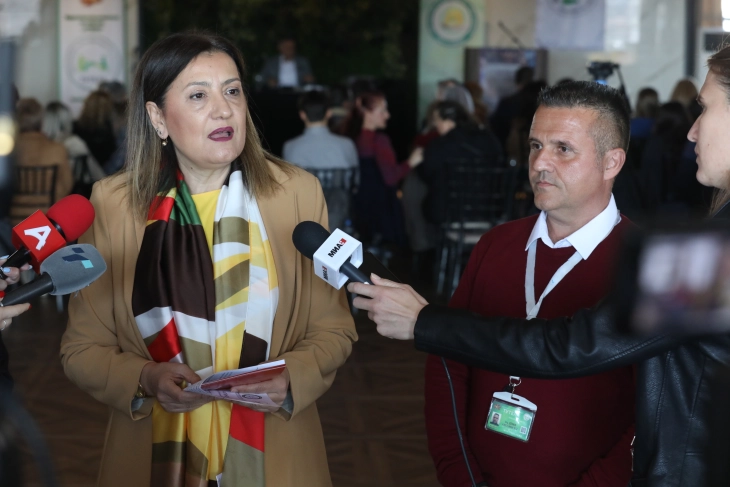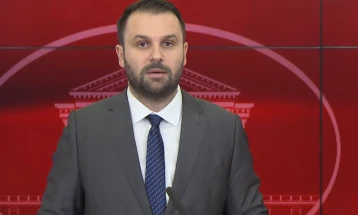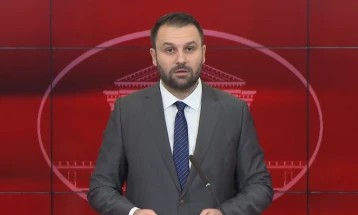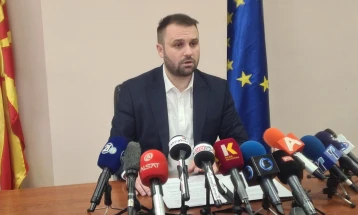Trenchevska: Bechtel-Enka law not defining 60-hour working week but overtime
- If we do not want to build infrastructure in the country for 15-20 years but complete it in less than five years, as stipulated in the Bechtel-Enka agreement, then the practice here and across the globe proves we should allow for overtime, said Minister of Labor and Social Policy Jovanka Trenchevska on Friday.
- Post By Ivan Kolekevski
- 13:45, 28 April, 2023

Skopje, 28 April 2023 (MIA) - If we do not want to build infrastructure in the country for 15-20 years but complete it in less than five years, as stipulated in the Bechtel-Enka agreement, then the practice here and across the globe proves we should allow for overtime, said Minister of Labor and Social Policy Jovanka Trenchevska on Friday.
Minister Trenchevska said the law does not define a 60-hour working week but overtime.
"The overtime will be paid for each hour exceeding the regular working hours to the worker, while ensuring all international standards related to occupational safety and health. In this case, the construction workers will get the highest protection in this part. If they work overtime, this will depend mostly from the weather conditions. They can work longer in spring and summer but we will have to define the overtime upper limit," said Trenchevska.
According to her, the most important thing is that employers get written consent from the worker regarding the overtime, whereas all occupational safety and health standards are met and every overtime hour is paid.
"We are working with the experts on making amendments that provide for 12 hours of rest between working days and a 24-hour rest over a period of one week," said Trenchevska.
As per the amendments to the Law on Labor Relations, which are currently in parliamentary procedure, overtime is proposed in cases of national and strategic interest, such as the Bechtel-Enka project, so that it lasts longer than the prescribed eight hours in the course of one week, more than eight hours on average within a three-month period, and more than 190 hours a year, with prior consent by the worker.







